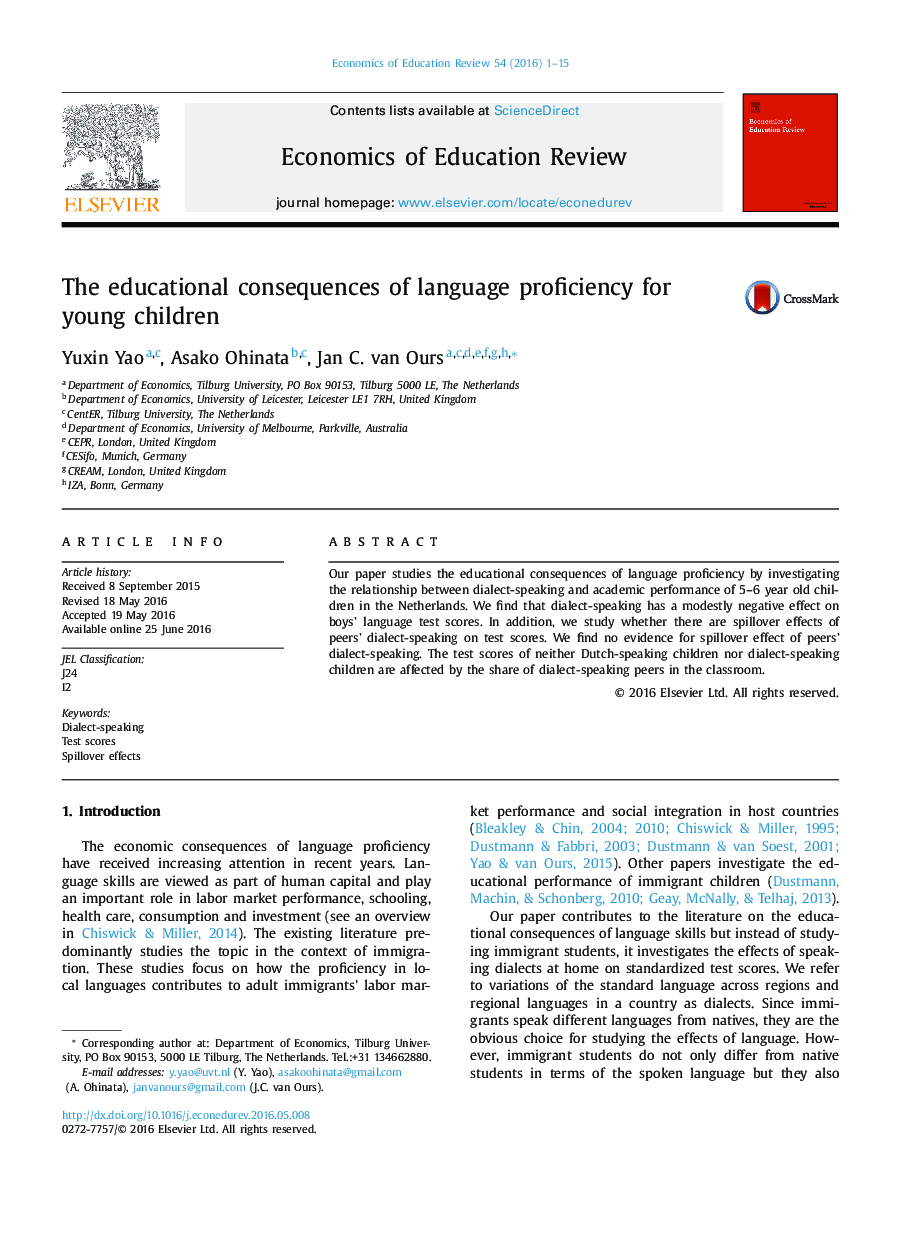| کد مقاله | کد نشریه | سال انتشار | مقاله انگلیسی | نسخه تمام متن |
|---|---|---|---|---|
| 354233 | 1434809 | 2016 | 15 صفحه PDF | دانلود رایگان |
• This paper studies the educational consequences of language proficiency.
• We study the relationship between dialect-speaking and academic performance of 5–6 year old children in the Netherlands.
• We find that dialect-speaking has a modestly negative effect on boys’ language test scores
• We study whether there are spillover effects of peers’ dialect-speaking on test scores.
• We find no evidence for spillover effect of peers’ dialect-speaking.
• The test scores of Dutch-speaking children are not affected by the share of dialect-speaking peers in the classroom.
• The test scores of dialect-speaking children are not affected by the share of dialect-speaking peers in the classroom either.
Our paper studies the educational consequences of language proficiency by investigating the relationship between dialect-speaking and academic performance of 5–6 year old children in the Netherlands. We find that dialect-speaking has a modestly negative effect on boys’ language test scores. In addition, we study whether there are spillover effects of peers’ dialect-speaking on test scores. We find no evidence for spillover effect of peers’ dialect-speaking. The test scores of neither Dutch-speaking children nor dialect-speaking children are affected by the share of dialect-speaking peers in the classroom.
Journal: Economics of Education Review - Volume 54, October 2016, Pages 1–15
